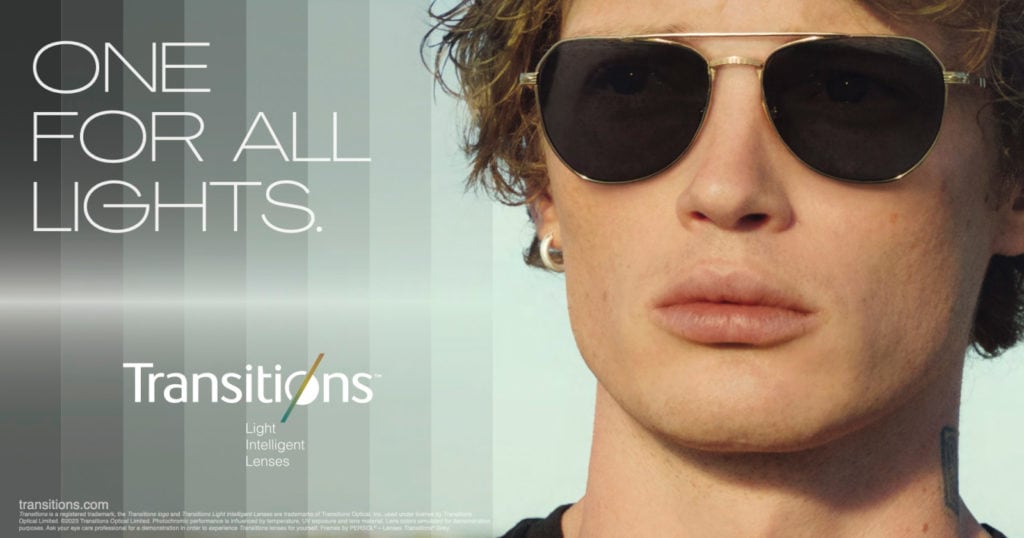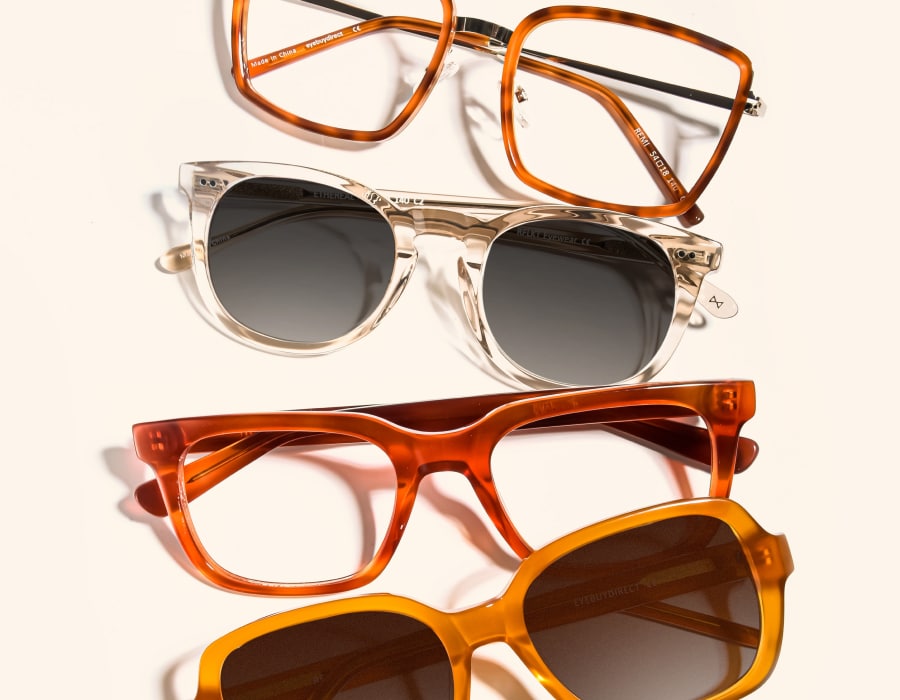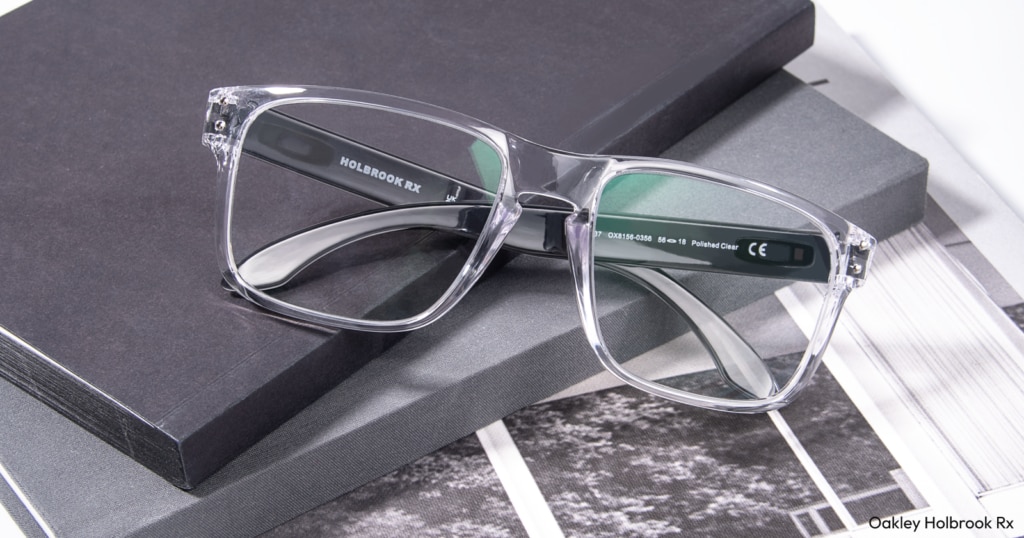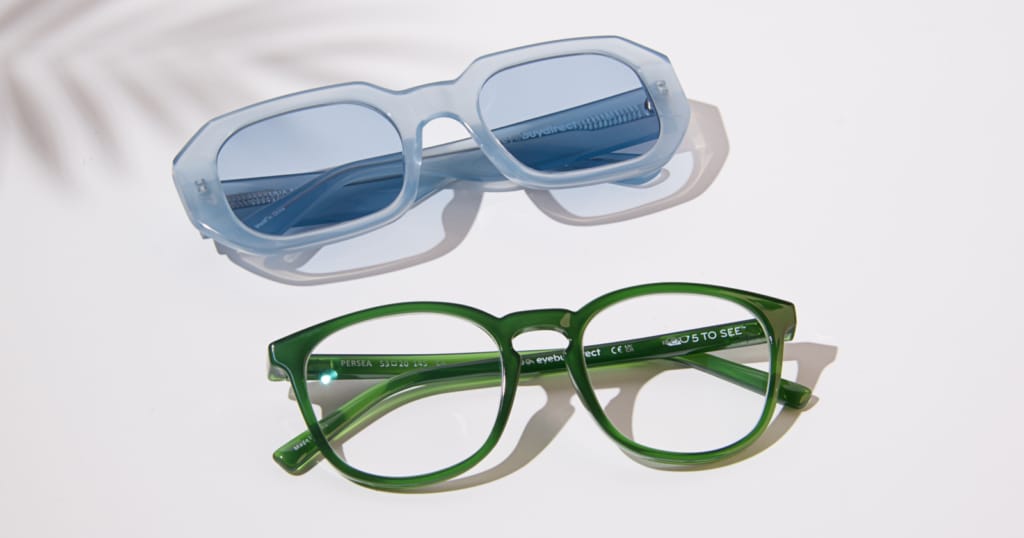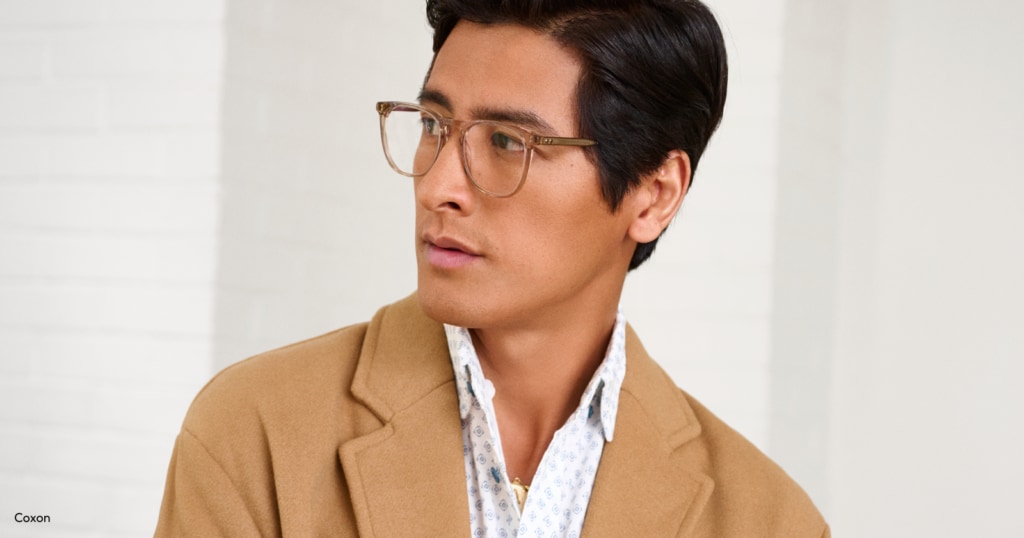What Are Transitions® and Progressive Lenses?
With so many lens options available for eyeglasses, it can be hard to decide which features are best for you. Read on to learn more about transition lenses and progressive lenses, including:
- How they’re different.
- Why they may be a good choice for your lifestyle.
- How they compare to standard lenses.
Transition Glasses Meaning
Transitions® lenses feature an intuitive light-sensing technology that causes them to adjust their tint based on the light levels of your surroundings. For example, if you decide to go for a walk on a sunny day, your lenses will darken as you make your way from indoors to outside.
The great thing about these transitional lenses is they can work as both prescription eyeglasses and sunglasses at the same time! Amazing right?
Progressive Glasses Meaning
A progressive lens features the nifty ability to correct your vision for both close range and long distance. But isn’t that what bifocal lenses do? Not quite.
Here are some of the differences between bifocal and progressive lenses:
- Bifocals only feature two levels of strength.
- Progressives change gradually across multiple strengths as you move down the lens.
- Bifocals have a visible line on the lenses that separate the two powers.
- Progressives eliminate the unsightly line found in bifocals and improve your vision with much more coverage.
Most of our frames are available with progressive lenses, so take a look at all our stylish frames here!
What Makes Progressive Eyeglasses Useful?
The usefulness of progressive lenses is pretty much indisputable. The progressive aspect of these eyeglass lenses means they provide a clear image throughout your whole field of vision when you need correction for both near and distance vision.
If you’re nearsighted (have trouble seeing far away), it’s likely that you wear single-vision eyeglasses designed specifically to correct your nearsightedness. But if you develop presbyopia, the natural age-related loss of near focusing ability, your single-vision lenses won’t help you see things up close.
Just picture your grandparents lifting their glasses and squinting to read something and you’ll get an idea. Progressives solve that problem by correcting for both distances.
It might take a little while to adjust to the varying strengths in the lens, but for most people it becomes second nature quite quickly.
Do I Need Transitions Lenses?
Being an eyeglasses wearer on sunny days can pose a conundrum: Do you wear your prescription eyeglasses or non-prescription sunglasses? And if your vision is bad enough, you may not even have the choice!
Transitions lenses may not be necessary for vision correction, but they are incredibly useful for day-to-day life. This is because Transitions:
- Block 100% of harmful ultraviolet (UV) radiation
- Reduce glare
- Improve your visual comfort
The biggest advantage of these types of eyeglasses is that you have sunglasses and prescription eyeglasses all in one pair! So go ahead and find that special frame that really speaks to you, then add Transitions lenses to make them useful whatever the situation.
Can You Get Both Progressive and Transitions Lenses in One Frame?
Yes! And great news, almost all of our eyeglasses frames are available with both technologies together! Pick your favorite style from our fantastic progressive Transitions frame options, then select the multifocal and light-adjusting lens options before you check out. Try to find a pair that you think will look great on you with both clear and tinted lenses.
We need your current vision prescription to make progressive lenses for you.This includes your near vision requirements for the lower part of your lenses. Once you have these numbers from your eye doctor, you’re ready to order your all-purpose eyeglasses!
What Are Variable-Focus Lenses?
Scientists have also developed adjustable eyeglasses that allow the wearer to customize the strength of their lenses. This is done manually by using a dial at the hinges. The technology is great for people in developing countries who may not have easy access to an optometrist or families who can’t afford multiple pairs of glasses.
Note: Eyebuydirect does not offer variable-focus lenses at this time.

